 Leaky Brain Syndrome: Symptoms, Causes, and Natural Solutions
Leaky Brain Syndrome: Symptoms, Causes, and Natural Solutions
Are you experiencing brain fog, fatigue, memory issues, trouble concentrating, headaches, dizziness, depression, or anxiety? You may have leaky brain.
Leaky brain happens when the blood-brain barrier around your brain gets disrupted. This can lead to inflammation, nagging symptoms, and serious brain and mental health issues. The good news is that you can protect your brain through simple dietary and lifestyle changes.
In this article you will learn what leaky brain is. You will understand its main symptoms and long-term problems related to leaky brain. I will explain the main causes of leaky brain. I will share my top natural solutions for leaky brain to improve your health.
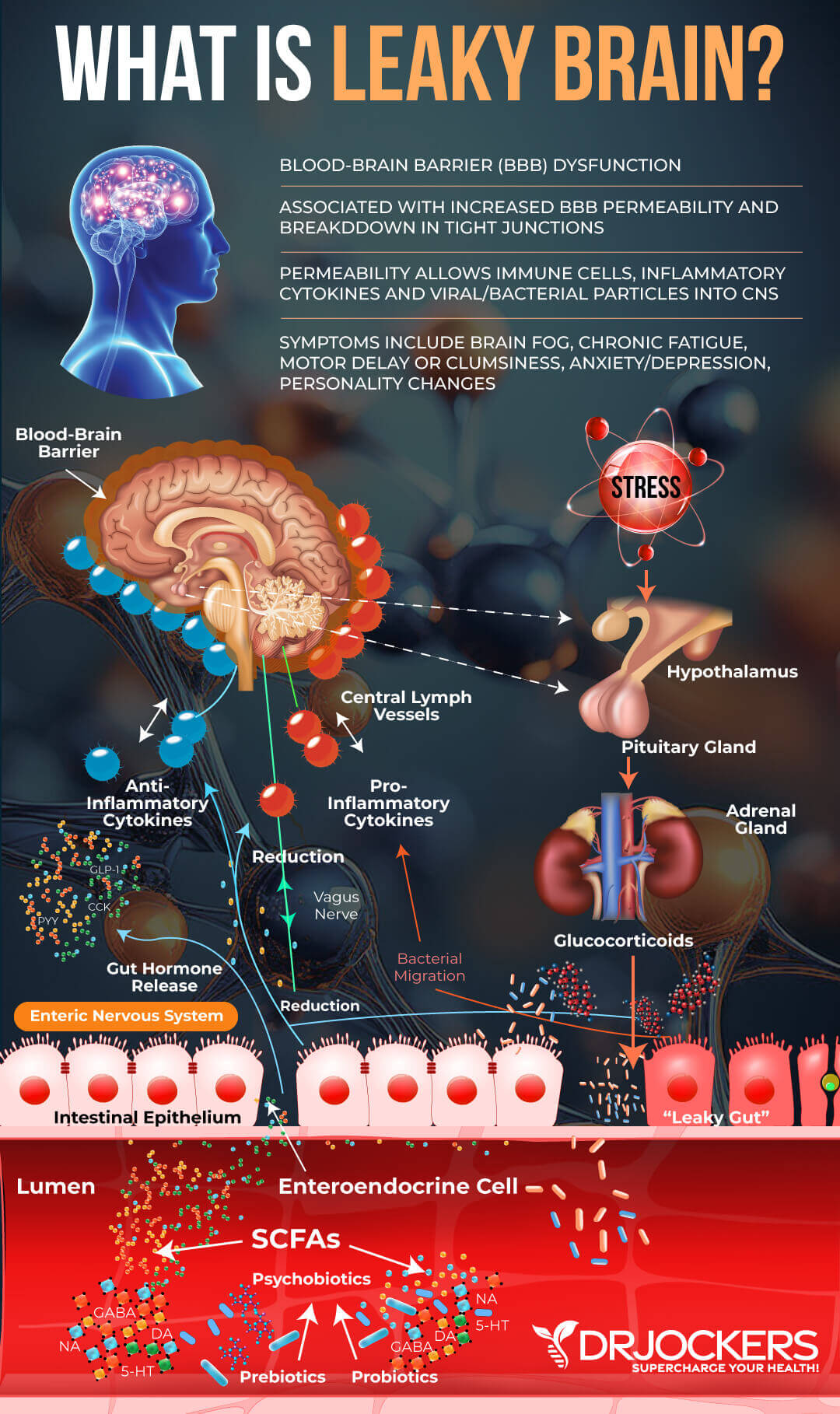
What is Leaky Brain Syndrome
If you’ve been following me for a while, you know that I have discussed leaky gut syndrome countless times. Due to unhealthy dietary and lifestyle choices, environmental toxicity, stress, and gut flora imbalance, your gut can become permeable or leaky.
This means that food particles and toxins can pass through your gut lining, get into your bloodstream, stimulate your immune system, increase inflammation, and increase your risk of disease. It turns out that there is another condition associated with leaky gut, called leaky brain.
In leaky brain, a similar situation happens to leaky gut but in your brain. Your blood-brain barrier (BBB) is a protective layer that keeps your brain a sanctuary. It keeps bacteria, viruses, and other toxins away.
Similar issues, lifestyle choices, and toxicity that lead to leaky gut can lead to the interruption and destruction of the blood-brain barrier. Here is a great image from GutGeek.com that explains the physiological details of the development of leaky brain.

Leaky Brain and Brain Degeneration
Leaky gut and leaky brain often occur at the same time. This is not surprising if you consider the connection between your gut and your brain. The proteins occludin and zonulin can both lead to gut and blood-brain barrier permeability. If you have antibodies against these two proteins, it may be a good indication that you have both leaky gut and leaky brain.
Elevated microRNA-155 molecule levels also indicate increased inflammation that may result in microscopic gaps in the blood-brain barrier. Leaky brain increases your risk of brain inflammation, autoimmunity, and other health issues.
The breakdown of the blood-brain barrier has been seen in various brain degeneration. Leaky brain and brain inflammation may lead to brain fog, depression, anxiety, autoimmune brain disorders, and other mental health and brain health problems. If you are dealing with symptoms of any of these brain or mental health issues, you may have a leaky brain (1, 2, 3, 4, 5, 6).
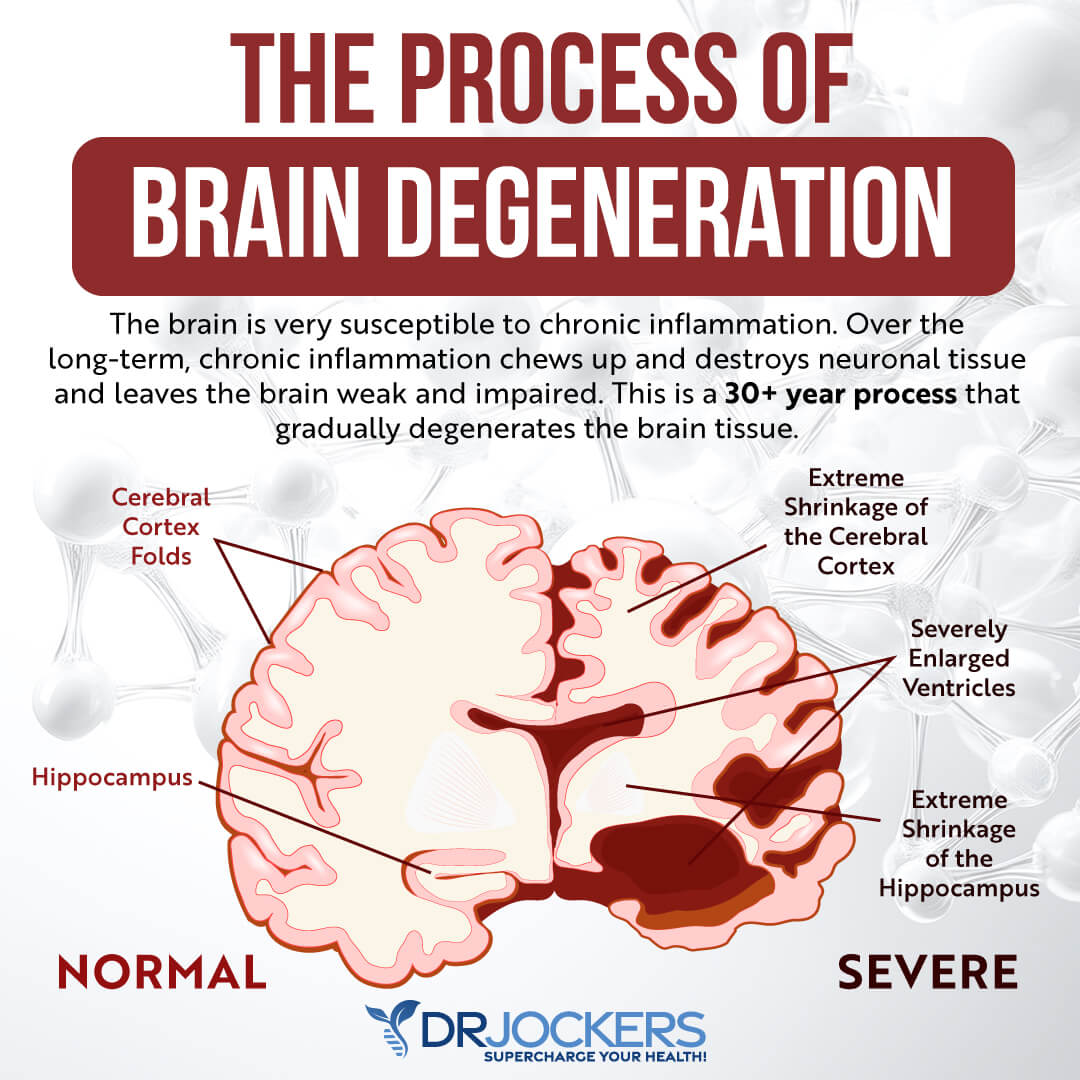
Symptoms of Leaky Brain
Leaky brain may show up in a variety of ways. Symptoms of leaky brain include (7):
- Brain fog
- Dizziness
- Irritability
- Depression
- Anxiety
- Concentration troubles
- Memory problems
- Fatigue
- Headaches or migraines
Long-Term Problems with Leaky Brain
Leaving leaky brain unaddressed can have serious consequences on your health. Having leaky brain for a long time may increase your risk of (7):
- Cognitive decline or dementia
- Neurodegenerative disorders, including Alzheimer’s and Parkinson’s disease.
- Multiple sclerosis or peripheral neuropathy
- Attention-deficit disorder (ADHD)
- Autism spectrum disorder
- Seizures
- Mental health issues, including depression, anxiety, and schizophrenia.
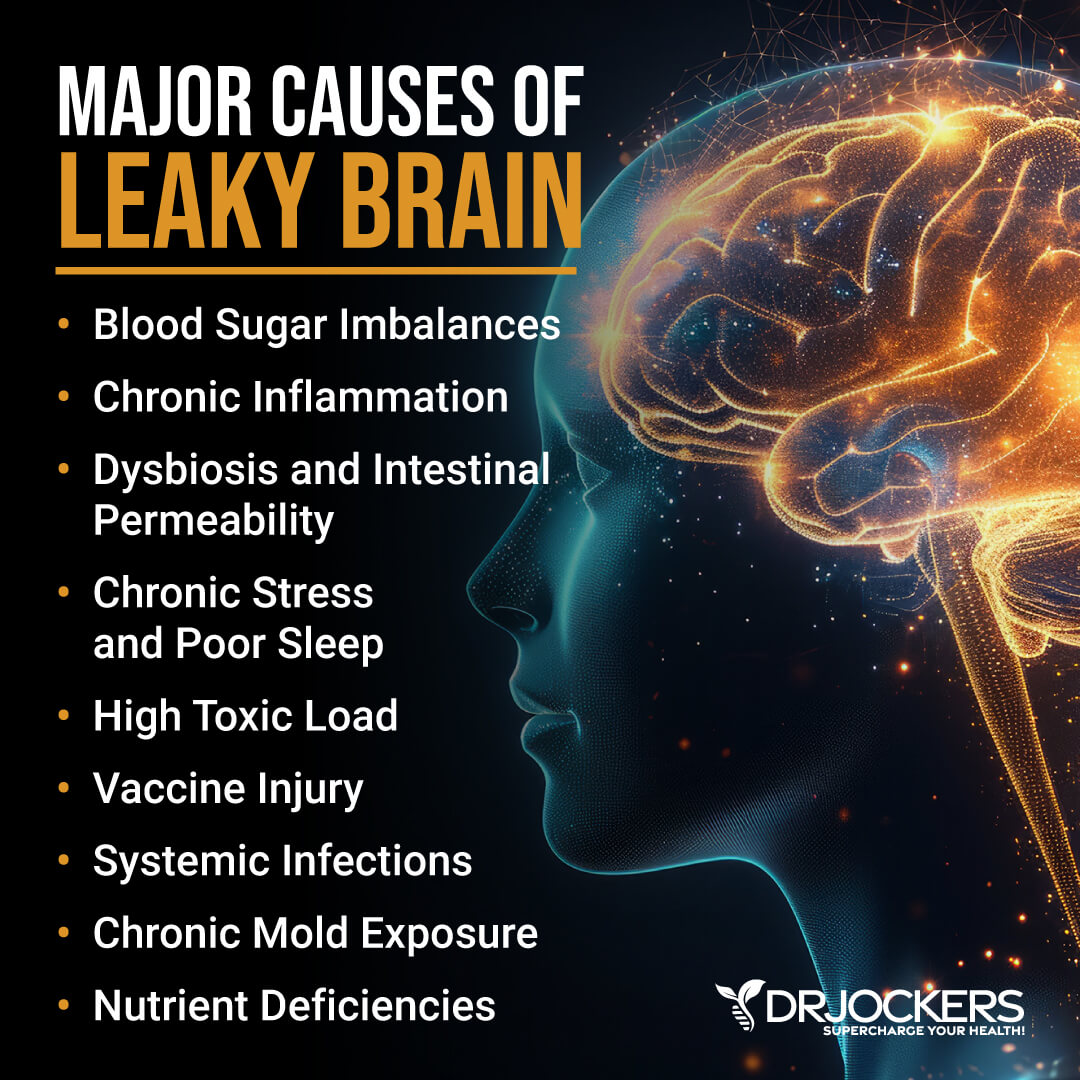
Major Causes of Leaky Brain
There are a variety of health issues, dietary choices, and lifestyle factors that may increase your risk of leaky brain. Let’s look at some of the major causes of leaky brain.
Blood Sugar Imbalances
If your diet is high in refined sugar and processed carbohydrates, but low in vegetables, brain-protecting healthy fats, and clean protein, you are setting your body up for blood sugar imbalances. While eating a quick high-carb snack or carb-heavy meal may feel emotionally satisfying and give you a burst of energy short-term, it will also lead to a sudden blood sugar drop characterized by fatigue and brain fog.
Blood sugar imbalances, especially hypoglycemia can increase oxidative stress and inflammation, lead to leaky brain, and compromise your brain health. It can result in brain fog, irritability, lightheadedness, mood fluctuations, anxiety, fatigue, and cravings (8, 9).

Chronic Inflammation
Chronic inflammation is the root cause of most modern-day diseases and pain. Chronic inflammation caused by dietary habits, lifestyle choices, and the environment may increase your risk of leaky brain. Eating a high-calorie inflammatory diet and obesity may increase oxidative damage. It may also deprive your brain of oxygen.
Chronic inflammation also increases free-radical damage. The blood-brain barrier is highly sensitive to chronic inflammation and free-radical damage. Both of these factors can disrupt the blood-brain barrier and damage its protective tight junctions. This can lead to accelerated signs of aging, brain fog, memory troubles, and neurodegenerative diseases (7).

Dysbiosis and Intestinal Permeability
As you’ve already learned, there is a clear and strong connection between your gut and brain health. It is easy to notice this connection during short-term events, such as a speaking engagement, a new date, or any other important event when you may experience gut problems or at least butterflies in your stomach.
This connection between your gut and brain is not only relevant during short-term exciting or stressful events. The communication between these two organs is ongoing, long-term, and intimate. Gut dysbiosis, gut infections, and intestinal permeability or leaky gut can increase your risk of leaky brain as well.
It leads to chronic inflammation and overall body imbalance. If you have gut dysbiosis, it means that you have too much yeast in your gut. It also means that you will have too much bad bacteria. Gram-negative bacteria are certain bad bacteria that do not retain the crystal violet stain used in the Gram-staining method of bacterial differentiation, including E. Coli, Salmonella, and Shigella.
The problem is that yeast releases acetaldehyde and gliotoxins and gram-negative bacteria release LPS endotoxins that disrupt the blood-brain barrier. Damage to the blood-brain barrier can lead to leaky brain and increase your risk and symptoms of brain fog, memory problems, cognition, mental health issues, mood imbalances, and neurodegenerative diseases (10, 11, 12, 13).

Chronic Stress & Poor Sleep
Chronic stress and poor sleep are two major factors that may lead to leaky brain. When your body is experiencing stress, your amygdala signals your hypothalamus which in response will increase your heart rate, heighten your senses, lead to heavier breathing and greater oxygen intake, increase cortisol levels, and rush adrenaline across your system.
While cortisol is essential to deal with short-term stress, chronic stress leads to too much cortisol. Too much cortisol can wear your brain down, disrupt synapse regulation, impair brain function, and increase leaky brain. Chronic poor sleep increases chronic stress, chronically high cortisol, chronic inflammation, low mood, brain fog, and so on. This may lead to a vicious cycle and increase your risk of dementia, Alzheimer’s disease, and other neurodegenerative diseases (14, 15, 16, 17, 18).

High Toxic Load
Toxins are unfortunately all around us. They are in our polluted air, municipal tap water, non-organic and processed foods, moldy indoor spaces, plastic products, and conventional beauty, body, and household products. Environmental toxins and a high toxic load may have a serious impact on our brain and overall health.
Neurotoxins, such as ethanol (in alcohol), glutamate, nitric oxide, botulinum toxin (in Botox), tetrodotoxin, and tetanus toxin, are particularly damaging to your brain function. Environmental toxicity may lead to leaky brain, which increases your risk of memory problems, brain fog, dementia, neurodegenerative diseases, mood swings, irritability, fatigue, anxiety, depression, and mental health issues (19, 20, 21).
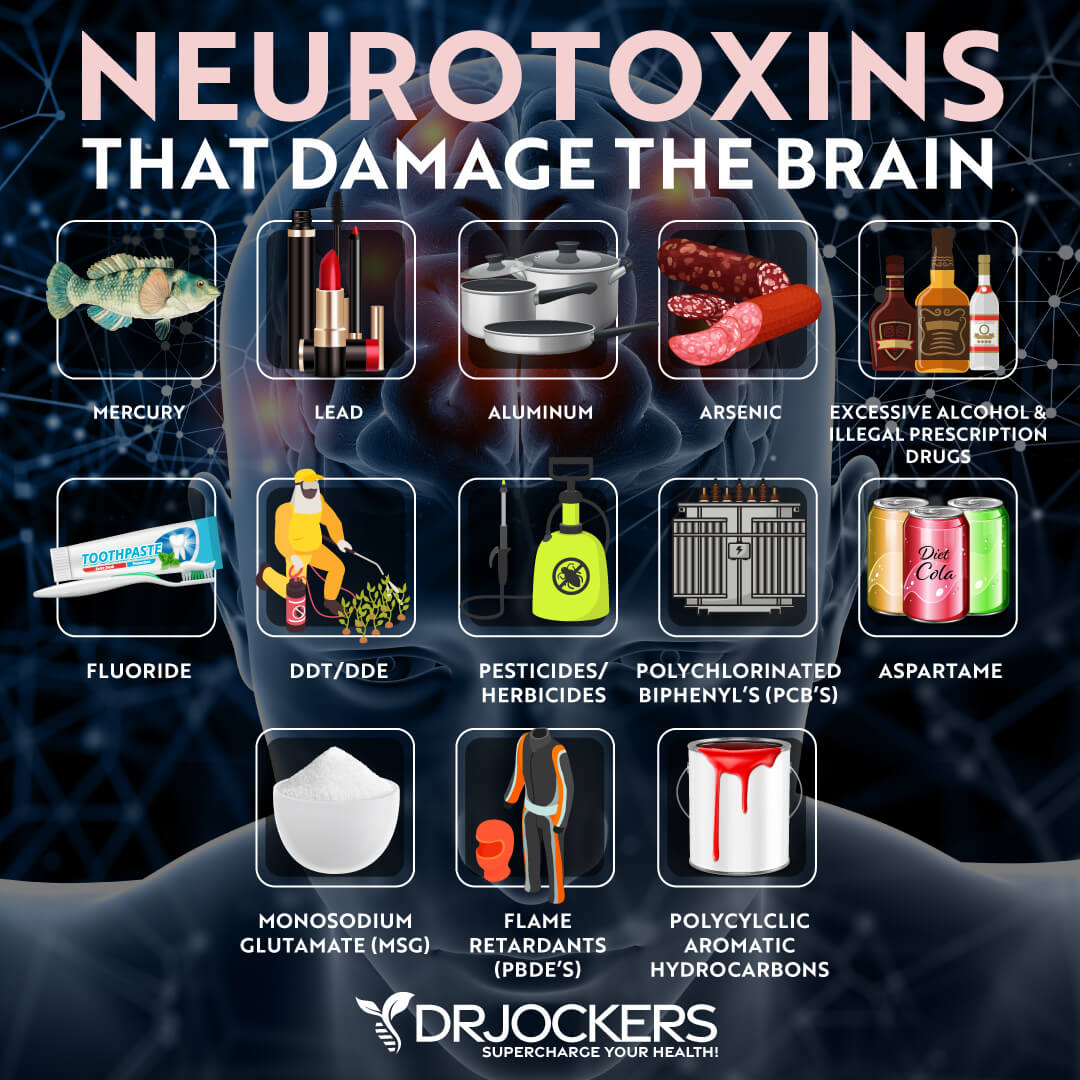
Vaccine Injury
You may not be aware, but many vaccines contain aluminum adjuvants made of Al hydroxide and/or Al phosphate nanoparticles. It has been used in vaccines ever since the 1920s. While pharmaceutical companies claim that it is safe, it is far from the truth. Aluminum adjuvants dissolve very slowly in your body, which means that they can stay in your body for a long time. The problem is that aluminum particles can be very toxic.
Macrophage (MF) is a type of immune cell that ingests aluminum adjuvant nanoparticles (AANs). When MF sees bacteria or other invaders in the body it destroys it with enzymes and eats it. The problem is that it doesn’t ingest AANs, which means that AANs can persist in them for a long time. If your MFs have too many AANs, they become highly contaminated with aluminum.
As the MFs cross the blood-brain barrier, they carry AANs inside them. They take AANs to your brain like a Trojan horse. Since your brain is highly sensitive to aluminum, this increases the risk of inflammation in the brain and brain health issues, including brain fog, memory troubles, cognitive decline, mental health issues, and autism spectrum disorder (22).

Systemic Infections & Chronic Mold
Systemic infections and chronic mold exposure are some of the main causes of leaky gut. Lyme disease, the Epstein-Barr Virus, and other chronic systemic infections can increase inflammation, pain, and the risk of all kinds of health issues. These systemic infections can deteriorate the blood-brain barrier letting bacteria and other toxins enter the brain and damage it.
Mold toxins trigger inflammation in your body and may increase the risk of chronic inflammatory response syndrome (CIRS). This may lead to oxidative damage in the brain and damages the blood-brain barrier. Systemic infections and chronic mold may increase your risk of brain fog, memory issues, anxiety, fatigue, cognitive issues, and other brain problems (7).
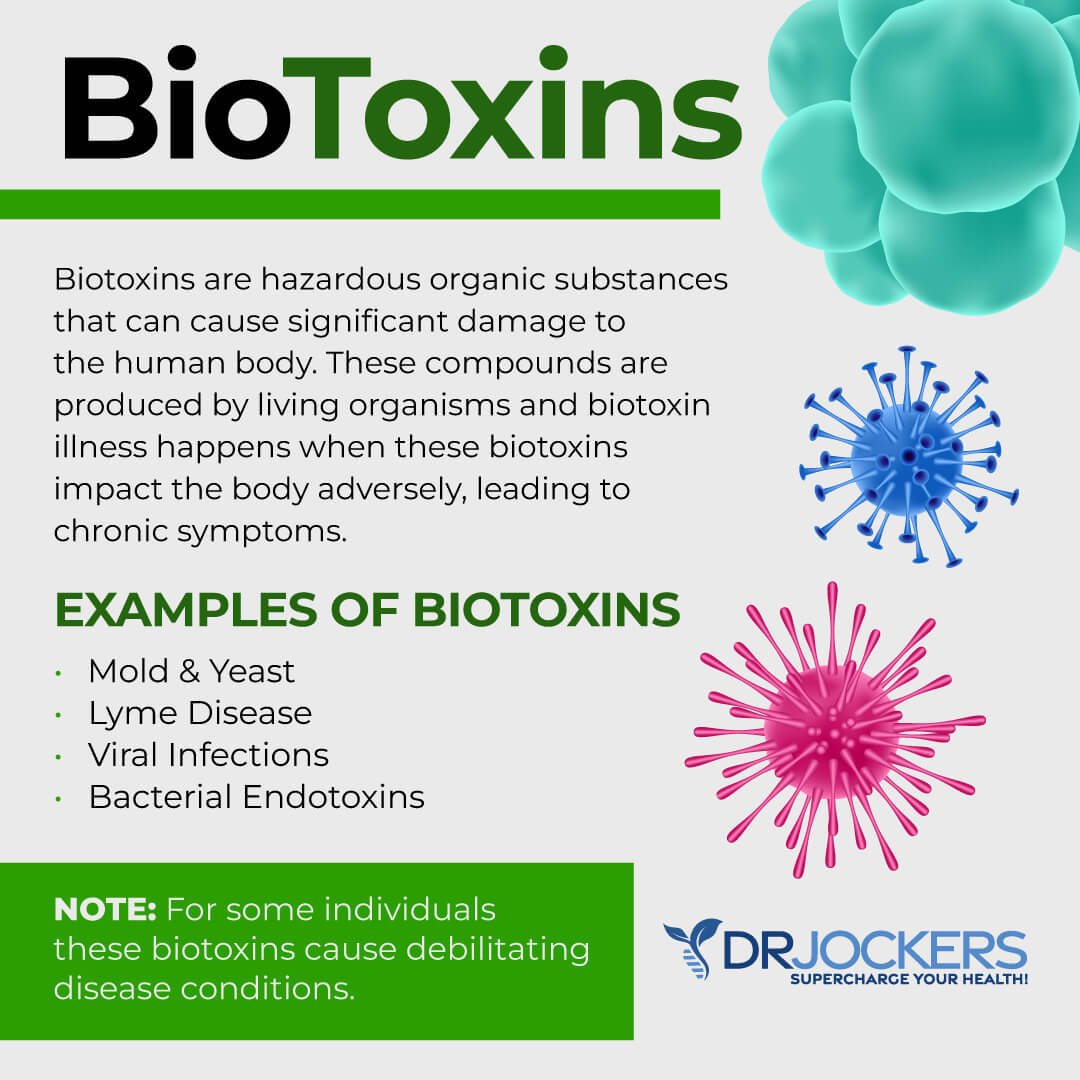
Nutrient Deficiencies
Eating an inflammatory diet, gut dysbiosis, poor nutrient absorption, stress, and poor lifestyle choices can set your body up for nutrient deficiencies. Nutrient deficiencies can increase your risk of inflammation and health issues, including leaky brain. Some of the main nutrient deficiencies that have been linked to leaky brain and brain health issues include vitamin D, magnesium, omega-3 fatty acids, and B vitamins.
A rat study has shown that vitamin D deficiency may increase blood-brain barrier dysfunction and consequently may lead to stroke. Magnesium deficiency may also reduce the blood-brain barrier permeability and increase the risk of stroke. Diets low in omega-3 fatty acids have been linked to cognitive deficits and cognitive decline, including Alzheimer’s disease.
B vitamins, specifically B6 and B12 deficits have also been linked to blood-brain barrier dysfunction, whereas supplementation has shown promise in the treatment of mild cognitive issues (23, 24, 25, 26).
Natural Solutions to Leaky Brain
It’s clear that leaky brain is quite a serious problem that can lead to unwanted symptoms and serious health issues. The good news is that some natural solutions to leaky brain help to improve your brain health and overall well-being.
Reduce Stress & Increase Gratitude
As you already know, chronic stress is incredibly damaging to your brain health and may increase your risk of leaky brain. Reducing your stress, therefore, is critical. Increasing gratitude in your life is one of the best ways to reduce stress.
Negativity cannot exist in a state of gratitude. Start your day by acknowledging the things that you are grateful for and end your day with gratitude. Stop throughout the day to notice the small things. You may set reminders on your phone for one-minute gratitude practices.
Keep a gratitude journal to write down three things you are grateful for. Because it is easy to stick to the easy one, such as friends, family, food on the table, or a roof over your head, I challenge you to write down three new things each day.
If you are feeling down, you can always look back at your gratitude journal to see all the good things in your life. Additionally, to a regular gratitude practice, I recommend that you practice meditation, breathwork, yoga, and grounding by walking barefoot on grass or dirt, take time to be in nature, spend time with loved ones, work on a positive mindset, pray or use other spiritual practices, and relax your body when you notice tension. If you need help with reducing stress, you may also seek professional help from a therapist, life coach, or spiritual counselor.

Improve Sleep Quality
Improving your sleep quality is important not only for leaky brain but your overall health. Sleep is essential for rest, cellular repair, and rejuvenation. Regular good sleep reduces stress, improves your energy levels, lowers inflammation, improves memory and cognition, improves your mood, and lowers the risk of disease.
Support your natural sleep-wake cycle by going to bed and waking up at the same time every day. Avoid eating, stressful activities, and electronics close to bedtime. Engage in relaxing activities, gratitude practice, meditation, and prayer to allow peace and quiet before going to sleep. Light a candle, use essential oils, or enjoy some herbal tea.
Create a peaceful sanctuary in your bedroom with a comfortable bed, bedding, and pillows. Having a salt lamp, calming crystals, your Bible, or other spiritual books or tools around may be a good idea for creating calm and peace. Use blackout curtains or eye masks to sleep in a dark room.

Anti-Inflammatory Nutrition Plan
You’ve probably heard the saying “You are what you eat.” While you are certainly much more than just the food you consume when it comes to your health, what you eat can set you up for success or failure. An inflammatory diet can lead leaky brain and health problems.
Eating an anti-inflammatory diet rich in nutrient-dense foods is one of the best things you can do for leaky brain and brain health. First, cut out all inflammatory foods, including refined sugar, gluten, refined oils, deep-fried and processed foods, conventional dairy, grain-fed meat and eggs, soda, and sugary drinks, and foods that you are sensitive to.
Instead, focus on an anti-inflammatory nutrition plan and load up on greens, vegetables, low glycemic index fruits, herbs, spices, fermented foods, healthy fats, grass-fed meat, and wild-caught fish. To learn more about an anti-inflammatory diet, read this article as well (27, 28, 29, 30, 31, 32, 33, 34, 35, 36).

Get Into Ketosis
Our modern-day diet is heavy or moderate in carbohydrates. As a result, most people’s body relies on glucose from dietary carbs to create energy. However, when your body doesn’t receive enough glucose because of a high-fat diet or fasting, it turns to dietary or stored body fat for energy.
These fats get turned into ketones that enter your mitochondria inside your cells and then get converted into energy. The benefits of ketosis include enhanced autophagy, reduced inflammation, improved mitochondrial biogenesis, improved brain health, and better mental sharpness.
The easiest and best way to achieve ketosis is through the combination of the ketogenic diet and intermittent fasting. To learn more about intermittent fasting, read the next section. To learn more about ketosis, I recommend reading this article. To learn more about the keto diet, I recommend this one (37, 38, 39, 40, 41, 42, 43, 44, 45, 46).
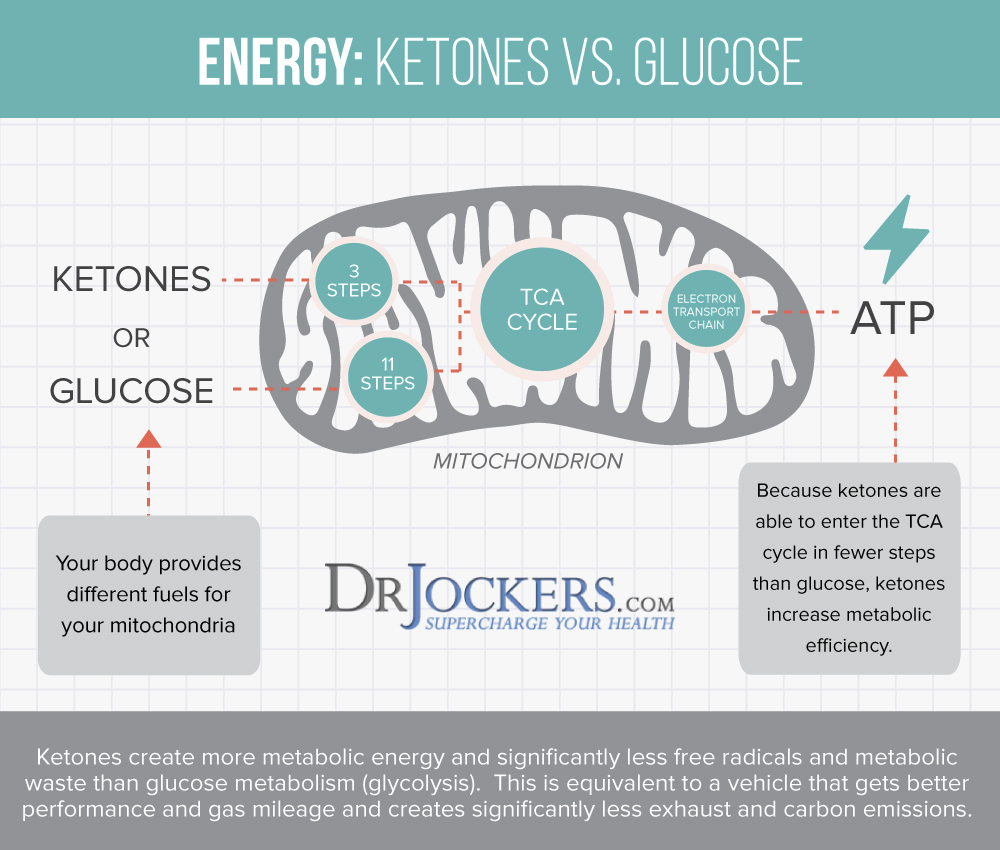
Practice Intermittent Fasting
Intermittent fasting is a form of fasting cycle between not eating (fasting) and eating (feasting) over a period of time. Intermittent fasting offers countless benefits including cellular repair, increased autophagy, immune regulation, inflammation levels, and insulin sensitivity.
It also helps to lower the risk of chronic diseases, including neurodegenerative conditions and mental health issues. If you are new to intermittent fasting, I recommend that you start with the Simple Fast, which includes only 12 hours of fasting including your overnight sleep. Slowly you can increase your fasting window.
Most people do the best with the 16:8 approach involving 16 hours of fasting. Make sure to consume nutrient-dense, anti-inflammatory foods during your eating window and meet your caloric needs. To learn more about the benefits of intermittent fasting and best intermittent fasting practices, I recommend this article (47, 48, 49, 50, 51, 52, 53, 54, 55, 56, 57, 58, 59).
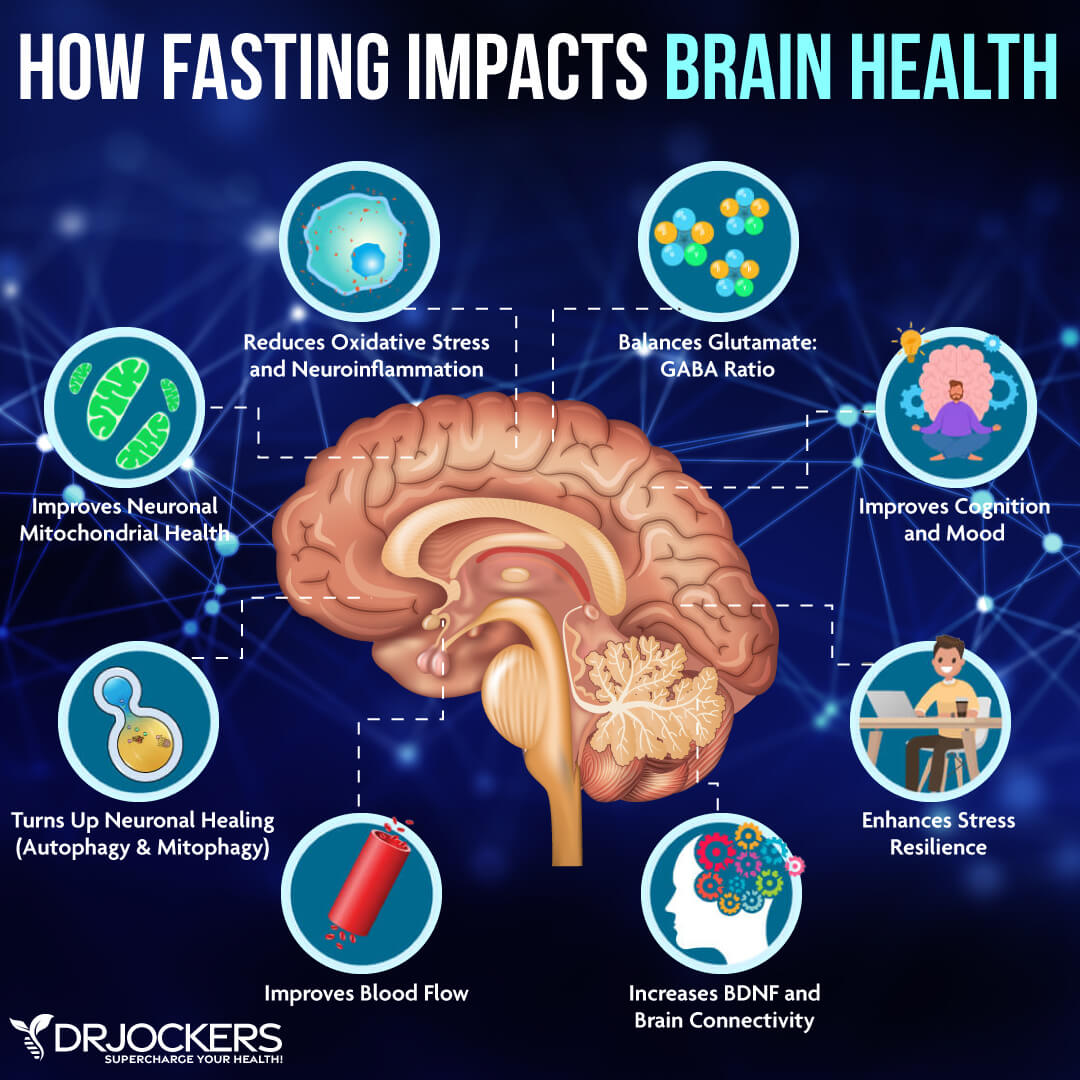
Regular Movement & Exercise
Regular movement and exercise are critical to your brain health. It’s a non-negotiable natural strategy for leaky brain. Upon waking, make sure you move your body. Stretch out or do a quick morning yoga routine. You may step outside to do some grounding by walking barefoot on the grass.
Move throughout the day by getting up to stretch, strolling down the park during lunch, dancing to your favorite song, taking the stairs, walking your dog, and playing with your kids. Exercise for 20 to 30 minutes at least five times a week. Mix up cardio with strength and resistance training exercises.
High-intensity interval training (HIIT) is a great way to fit some cardio and strength training into your day within a short time. Other ideas for cardio include dancing, running, biking, swimming, and trampoline workouts.
Other ideas for strength and resistance training include bodyweight workouts, weightlifting, and TRX. You may add lower-impact workouts, including Pilates, Barre, or yoga. End your day by stretching out.
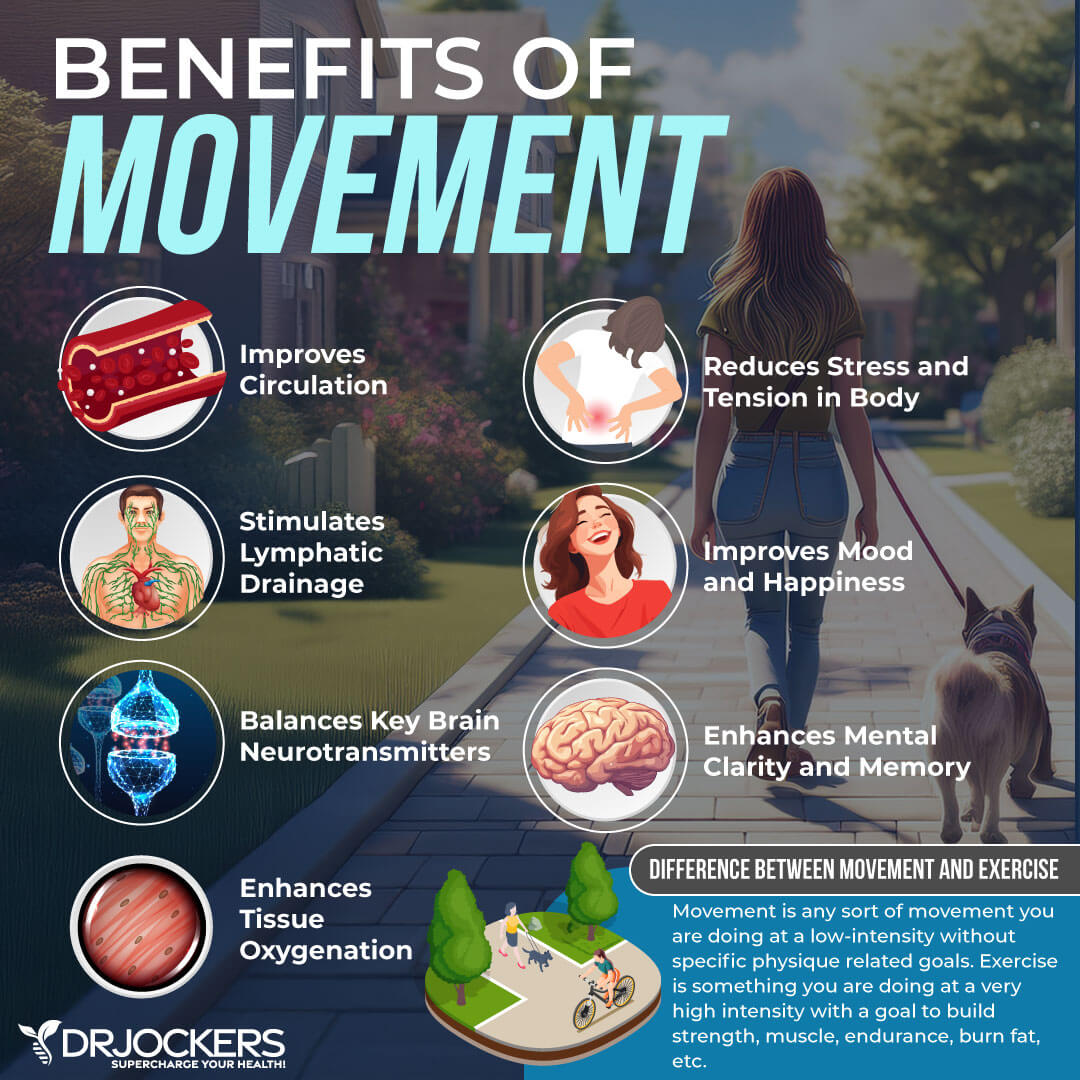
Improve Gut Health
As you know, your gut and brain are closely connected. Improve your gut health by removing inflammatory foods and eating a gut-friendly, anti-inflammatory, and nutrient-dense diet abundant in veggies, healthy fats, and clean protein.
Eat plenty of prebiotic-rich foods, including onion, garlic, leek, asparagus, and Jerusalem artichokes, and probiotic-rich foods, such as sauerkraut, kimchi, and kefir. For additional support, I recommend taking a daily probiotic supplement.
You can also consider taking digestive enzymes, betaine HCL, and ox bile to support digestion. Finally, there are several good nutrients like L-glutamine, aloe, ginger, etc. that help to reduce inflammation in the gut.

Reduce Toxin Exposure
Reducing your toxic exposure is critical for protecting your health from leaky brain. Buy organic food as much as possible. Stop using conventional beauty, body, and household products, and replace them with organic, natural, or homemade alternatives.
Use glass, stainless steel, wood, and bamboo products instead of plastic. Spend time in nature and breathe in the fresh air. Use a good indoor air filtration system. Make sure that you drink clean, toxin-free water by using a high-quality reverse osmosis system.
I recommend systems like Aquatrue or the Berkey system for low-cost filtration. The best water is the UltraLux Triple Action Hydrogen Water Machine which is what I use at home as it is powered by molecular hydrogen which reduces oxidative stress in the body and improves immune function. Add a slice of lime for some extra flavor.

Support Detoxification Pathways
It is not enough to put good things into your body, you have to make sure that the bad things come out as well. Drink plenty of water to support detoxification through sweating and urine. Support your detoxification pathways to protect your body from leaky brain.
I recommend using infrared saunas to promote detoxification through sweating. Try rebounding and dry skin brushing to support your lymphatic pathways. Support two major detoxifying organs, your kidneys, and liver with our Advanced TUDCA which contains herbs like milk thistle, parsley, and beetroot and is powered by bioactive carbons to get deep into the tissues and cells.
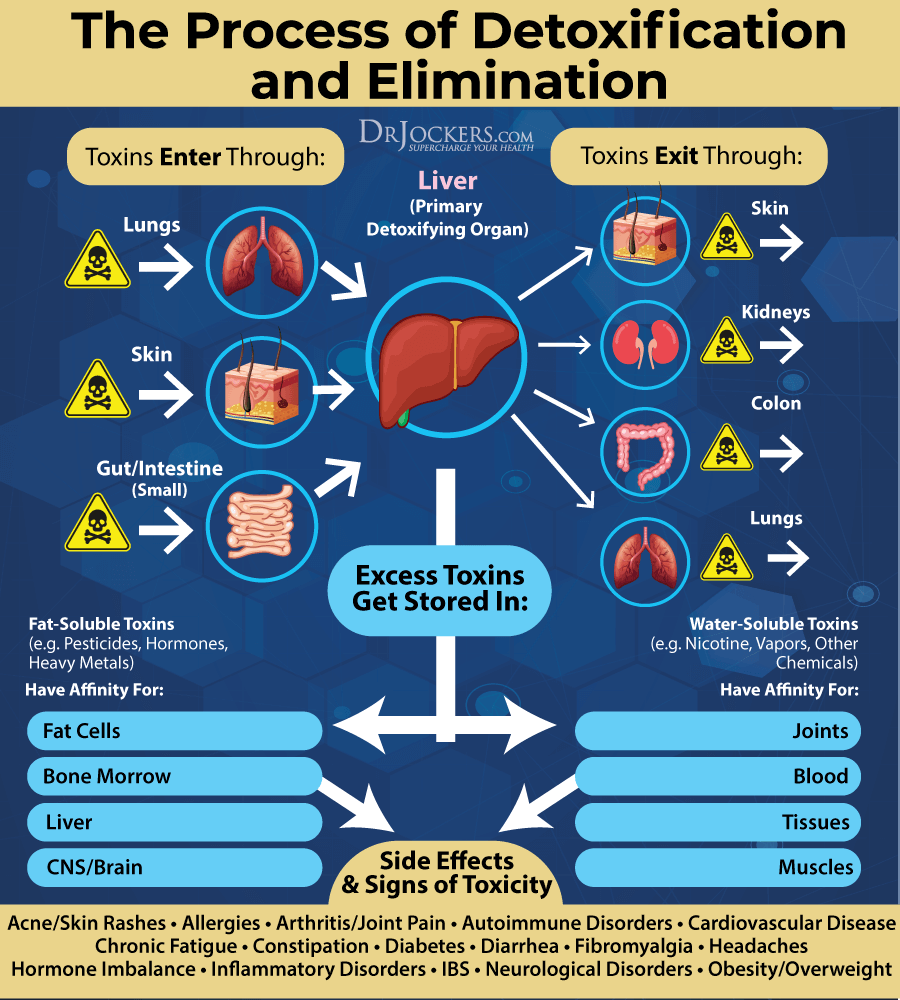
Use Targeted Supplementation
As you’ve learned, nutritional deficits are one of the major causes of leaky brain. Supplementation to correct nutritional deficiencies and reduce the risk of future deficits is critical. Additionally, supplementing with inflammatory and brain-supporting herbs is beneficial for leaky brain. Here is what I recommend:
Omega 3 Fatty Acids
Omega-3 fatty acids, including eicosapentaenoic acid (EPA) and docosahexaenoic acid (DHA) are highly beneficial for brain health and may help to prevent or improve brain degeneration. According to research, Omega-3 fatty acids may help to mitigate blood-brain barrier disruption. They may help with brain injury, dementia, Alzheimer’s disease, depression, and anxiety, among other brain and mental health conditions.
While wild-caught fish is a great source of omega-3 fatty acids, I recommend supplementation, such as ProOmega Curcumin for maximum support. This supplement helps to down-regulate inflammation and oxidative stress quickly, support a healthy gut, optimize cellular expression and cell signaling, and improve your brain health (58, 59, 60).

Vitamin D
Vitamin D is a very important vitamin for brain function. Research has found that vitamin D supplementation may protect the blood-brain barrier, reduce neuroinflammation, and reduce the risk of neurodegenerative diseases and mental health issues (23, 62).
To optimize your vitamin D levels, I recommend spending time out in the sunshine regularly. Most people are not getting enough sunshine or consuming enough vitamin D from food. Therefore, most people need to supplement to optimize their vitamin D levels.
Pairing vitamin D3 with vitamin K2 helps improve calcium absorption and inflammation control. I recommend taking a vitamin D3 supplement with at least 3,000-5,000 IUs of vitamin D3 and at least 90 mcg of vitamin K2.
Typically, taking 1,000 IU per 25 lbs. of body weight will help you get your levels into a healthy range. You want to test your vitamin D levels at least 1-2 times each year and get your levels between 50-100 ng/ml. It has been hypothesized that a therapeutic level for major health conditions is going to be between 70-100 ng/ml.

Magnesium
Magnesium is critical for brain health, mental health, stress relief, and relaxation. Research has shown its brain-protecting qualities and potential benefits for traumatic brain injury. Some good sources of magnesium include almonds, spinach, avocadoes, bananas, kale, pumpkin seeds, sunflower seeds, and cashews.
However, eating magnesium-rich foods is usually not enough to optimize your magnesium levels. To improve your magnesium levels, and protect your brain from leaky brain, I recommend Brain Calm Magnesium. This supplement helps muscle function, healthy nerve conduction, neurological function, energy production, mood, and mental health (63).
B Vitamins
B vitamins are important vitamins that are necessary for cellular health, energy levels, brain health, digestion, red blood cells, and nerve function. They are also important for avoiding leaky brain.
According to a study on the effects of high-dose vitamin B12-B6-folate supplementation for 270 days, these B vitamins may be able to improve the blood-brain barrier and lower mild cognitive impairment. Foods high in B vitamins include meat, eggs, legumes, nuts, seeds, and dark leafy greens. Additionally, to eat a diet rich in B vitamins, I recommend taking B Strong and B12 Power (26).

Resveratrol
Resveratrol is a powerful compound found in the skin of grapes and berries. Resveratrol offers immense health benefits through its powerful antioxidant, anti-inflammatory, and immune-protecting properties.
Not surprisingly, it is also great for leaky brain. Resveratrol may help to maintain a healthy blood-brain barrier. Resveratrol also activates the NrF2 pathway which helps the cells detoxify and protect themselves from oxidative stress.
A rat study has shown that it may reduce cerebral ischemia-reperfusion damage, brain edema, and Evans blue dye extravasation therefore may show promise in helping brain health issues. To experience the benefits of resveratrol, I recommend Resveratrol Power (64, 65).

Curcumin
Curcumin is the active compound of the spice, turmeric. Turmeric has been used for thousands of years in India and other Asian cultures for its medicinal healing properties. Curcumin is also one of the most well-researched spices with anti-inflammatory, antioxidant, and pain-reducing benefits. It turns out that it may also be great for leaky brain.
According to a study on changes in tight junction (TJ) proteins induced by oxygen-glucose deprivation (OGD) in the blood-brain barrier, curcumin may be able to benefit and improve the blood-brain barrier. To experience the benefits of curcumin, I recommend that you add turmeric to your smoothies, tea, soups, stews, and other dishes, and take turmeric supplements daily (66, 67, 68, 69, 70, 71).
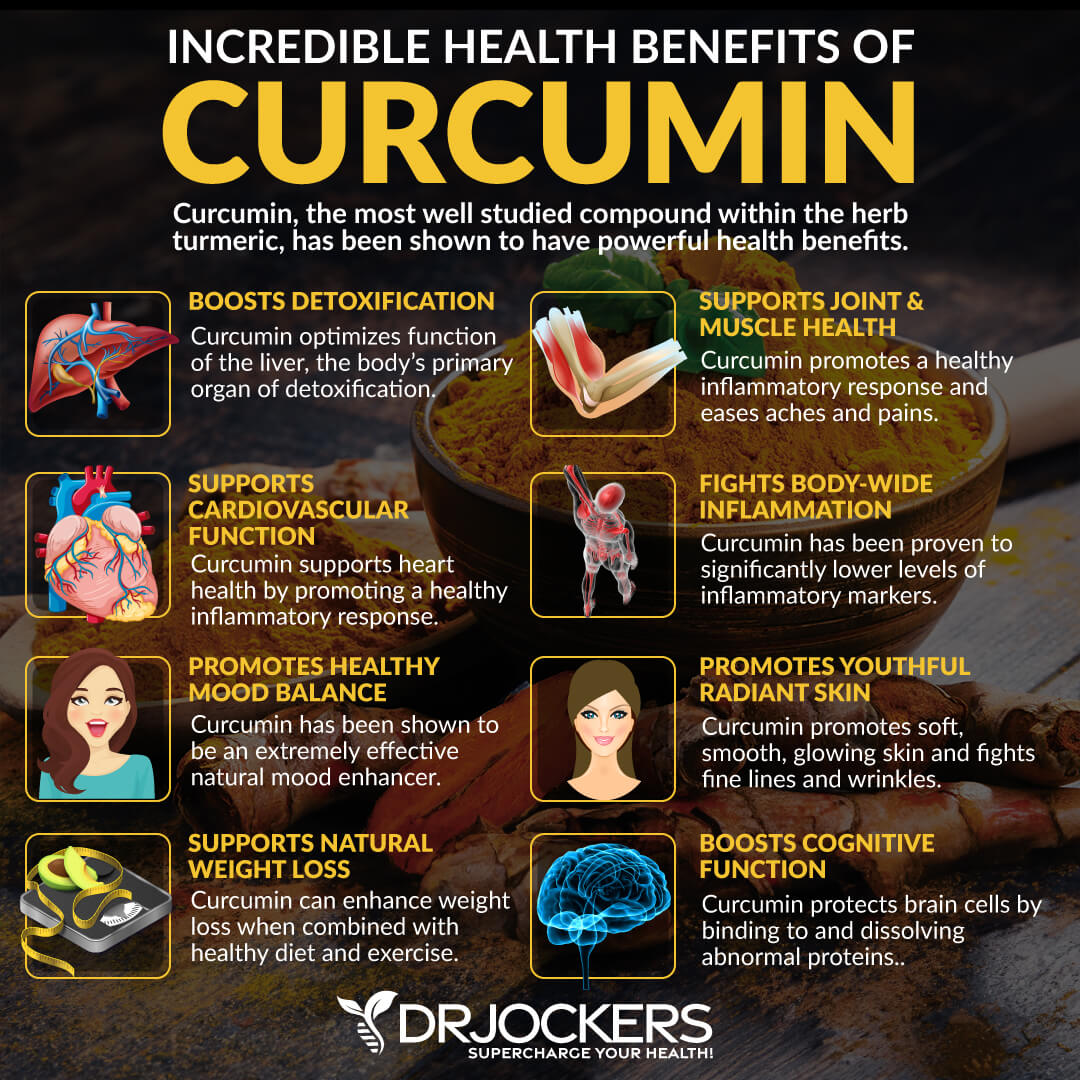
Quercetin
Quercetin is a flavonoid that can be found in vegetables and fruits, including leafy greens, broccoli, tomatoes, and berries. It is rich in antioxidants with anti-inflammatory and immune-supporting benefits. It may offer benefits for leaky brain.
Research has shown that quercetin can permeate through the blood-brain barrier and protect the brain and the barrier itself. To experience the benefits of quercetin along with resveratrol, I recommend Resveratrol Power (72, 73).
Inflam Defense and Resveratrol Power for Extra Strong Support
For extra strong support, I recommend taking Inflam Defense™ and Resveratrol Power to lower inflammation and to protect your brain. Inflam Defense™ is a powerful combination of anti-inflammatory herbs, such as curcumin, boswellia, ginger, and rosemary extract as well as nutrients from quercetin and rutin, and proteolytic enzymes.
It is created to help downregulate the inflammatory process and deal with the negative impact of acute or chronic inflammatory conditions. Resveratrol Power combines resveratrol and quercetin to provide a synergy of nutrients to defend against oxidative damage, lower inflammation, and support overall immune health.
Final Thoughts
Leaky brain often occurs along with leaky gut syndrome. It happens when the blood-brain barrier around your brain gets disrupted.
This can lead to inflammation, brain fog, memory trouble, concentration issues, cognitive problems, anxiety, depression, and serious brain and mental health issues. Follow my natural strategies for leaky brain to improve your health and well-being and create the health and life you deserve.
If you want to work with a functional health coach, I recommend this article with tips on how to find a great coach. We do offer long-distance functional health coaching programs with our world class team of health coaches. For further support with your health goals, just reach out and our fantastic coaches are here to support your journey.
Inflammation Crushing Ebundle
The Inflammation Crushing Ebundle is designed to help you improve your brain, liver, immune system and discover the healing strategies, foods and recipes to burn fat, reduce inflammation and Thrive in Life!
As a doctor of natural medicine, I have spent the past 20 years studying the best healing strategies and worked with hundreds of coaching clients, helping them overcome chronic health conditions and optimize their overall health.
In our Inflammation Crushing Ebundle, I have put together my very best strategies to reduce inflammation and optimize your healing potential. Take a look at what you will get inside these valuable guides below!
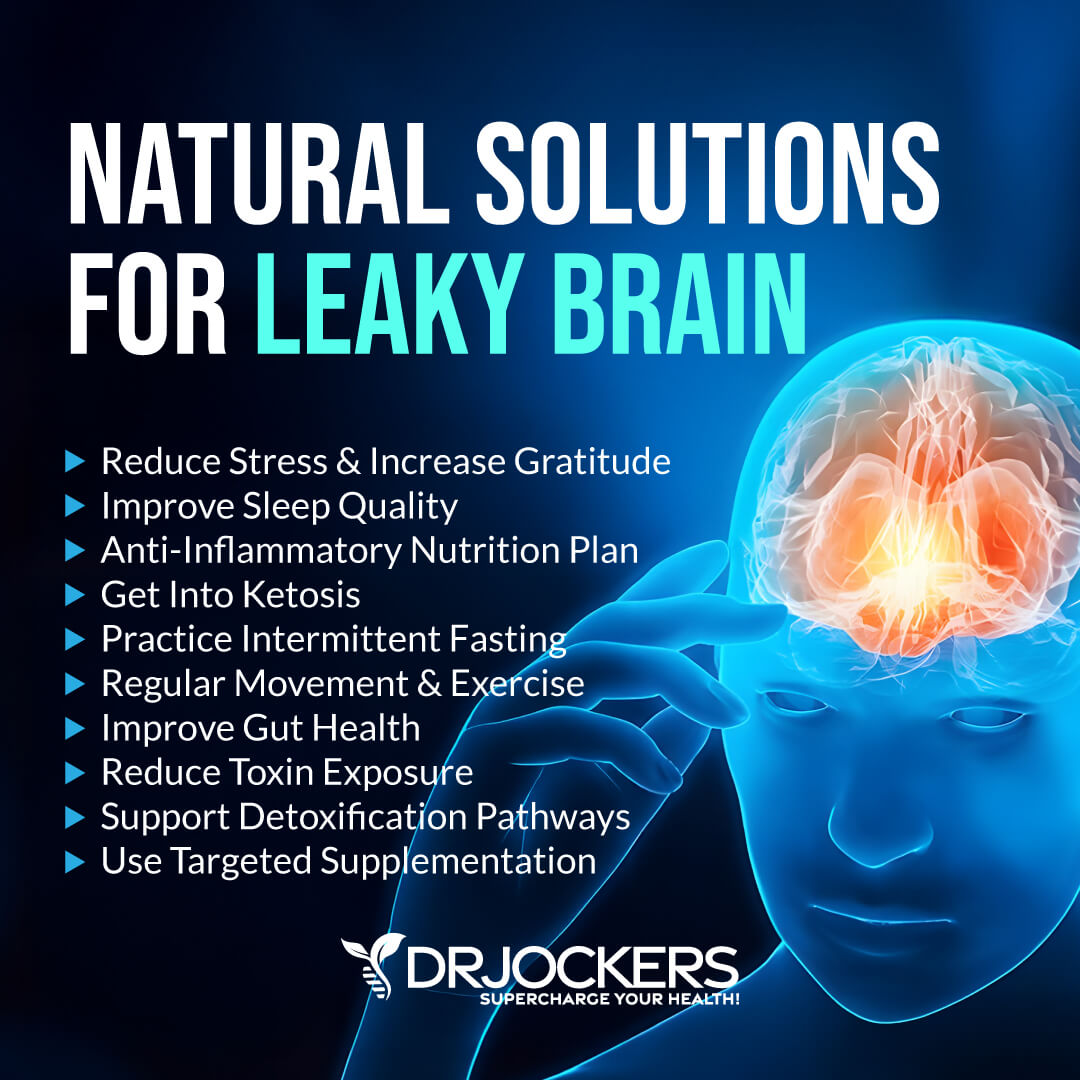







You should have been my science teacher when I was in school. This article is well written. Deserves to be in the curriculum.
Yes thank you so much!
Is there a way to be able to print out these wonderfully informative articles? I have purchased seberal programs from your site and I am currently working with nutritionist Danielle. I have a notebook of a couple of articles I attempted to cute and paste but wasnt very successful. I am currently trying to work with the Brain program as i am having. Some cognitive concerns. It is a hard transformation but I will get there. Having youe resources is very helpful, especially, audio programs.
Thank you.
Yes we have a printer friendly button on the top right corner of each article. Glad you are getting a lot out of the articles and podcasts!
Hi Dr Jockers, This article is very interesting and it is helpful to see the visual diagrams to understand the topic better. The request I have is if possible to make the print version less long (this article is 37 pages!) – could perhaps leave out the product ads and things like the Plato quote in large box? That would sure help a lot! Thank you for considering this.
Hey Denise,
Yes, you can copy/paste the article on a word document and then delete any images you don’t want in the print out. Blessings!
Is there a suggested diet plan / meal plan associated with this?
Yes here are some ideas: https://drjockers.com/real-food-keto/
Hello Dr.
We are used to cleaning our hands and body daily.
We use special creams, shampoos, soaps.
But how little we think about our internal organs.
Do they also need us to take care of them
Yes very true!
Hi Dr. Jockers,
You say not to drink water with meals and I understand why; however, most of
the vitamin /mineral supplements say on the bottles to “take with food”. For years I have taken them with meals as I can’t figure how else to do it and follow the instructions.
Could you give an example of how to take them correctly? For example, taking 15 or more pills per day like I do and yet not take them with a meal? The health food stores
don’t know either. Hopefully, more health coaches will address this in the future.
Thank you and blessings to you and your lovely family.
Yes you may need to drink a little bit of water to consume your supplements and that is fine. But you shouldn’t need to drink any more water than the little you drink to get your supplements down.
Any ideas for Long C brain issues. Finally got 9/2/29 mycotoxin CIRS, ME/CFS tolerable and now ground 0 CDR. No energy, no brain, still have Hope and pray. None of things that worked in past do now. I fast so much I do not count it unless it is over 24 to 48 hrs. Keto too. God Bless you. Your kids and wife are such a joy to watch.
Yes Cindy, we go through it in detail here: https://drjockers.com/post-viral-syndrome/
Gluten may cause leaky gut and leaky blood brain barrier. Some antibiotics may go through the blood brain barrier like minocycline causing very strange dreams. Lyme/coinfections may hurt the gut lining and go into the brain. Ozone may help infections and help heal the gut lining/brain lining. Gluten is in wheat/barley/rye….oats/corn/rice. Rice is low in gluten. Wild rice has no gluten…is a grass. Sugar/starch feed infections and lower the immune system. Zn/Mg/fish oil/lecithin/coconut flakes/coenzymated B vitamins/Vit A/Vit C/Vit D3/sunlight/herbs/mushrooms/tea/lemon and lime water/Orthobiotic probiotic/organic vegetables/protein etc. may help the immune system/gut and brain lining.
What if it is from a brain injury? How do I heal my brain? Happened in June, and it is still a problem…
Hello Evelyn, sorry to hear this. Here is a helpful article: https://drjockers.com/brain-regeneration/
1. I see you have nicotine as a water soluble toxin… I’ve read/heard a lot of recent conflicting information on that – perhaps it’s more the chemicals/additives that come with the products that contain it?
2. Can breastfeeding women do any type of intermittent fasting?
3. What are the best food sources of Vit D? I’ve heard/read some conflicting info about taking synthetic forms of Vit D… advice?
4. Thank for your contributions to making the world a better place!
Dr. Jockers: I am entrigued by everything you say, distribute.
I have Sibo, vagus nerve issues i think and I’m sure the brain blood barrier
inflammation.
You are amazingly informative.
JoAnn Trampler
Hello from South Africa Thank you Dr for always sharing very informative information. The illustrations are always super helpful.
Be blessed.
Thank you so much for all your support!